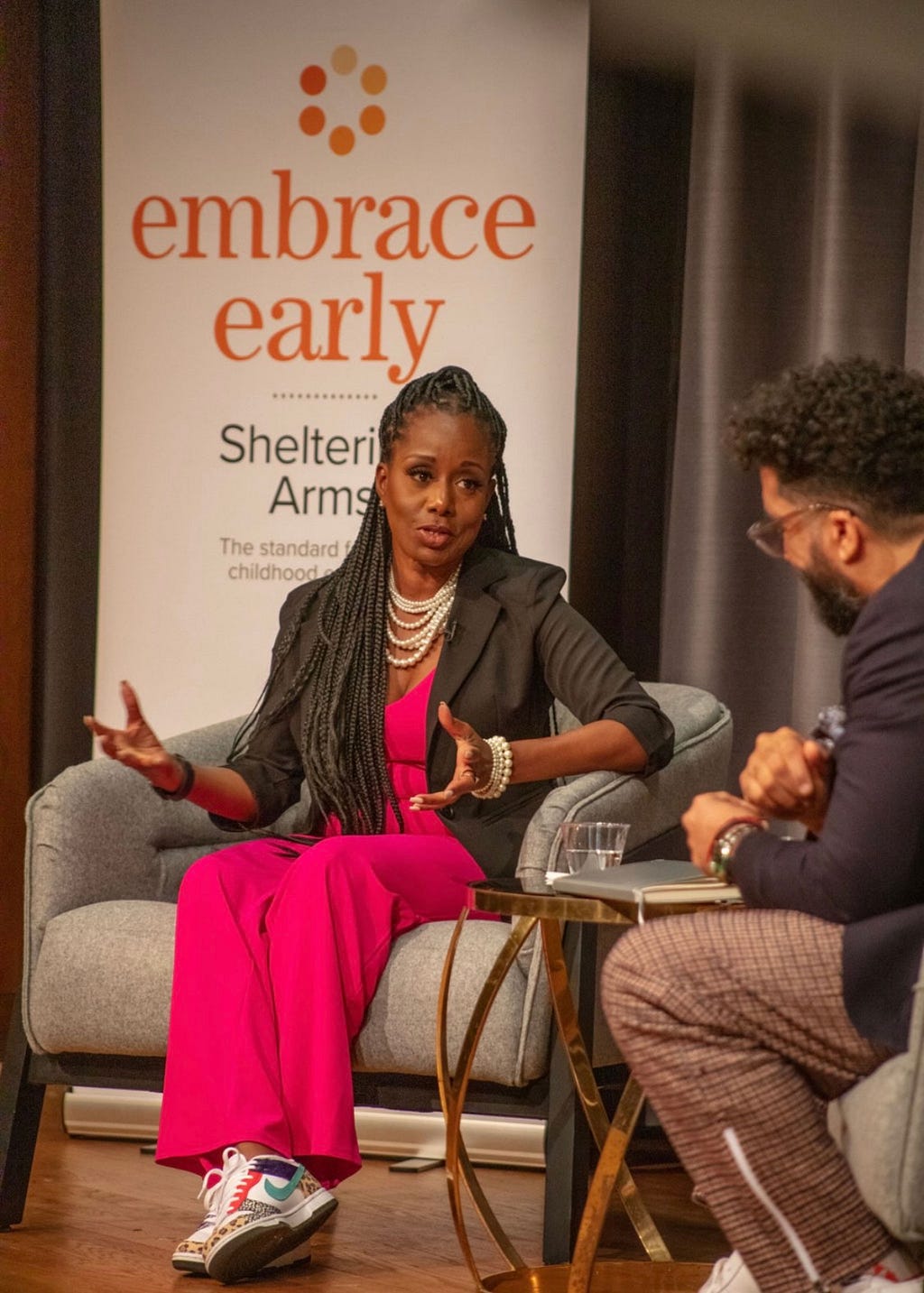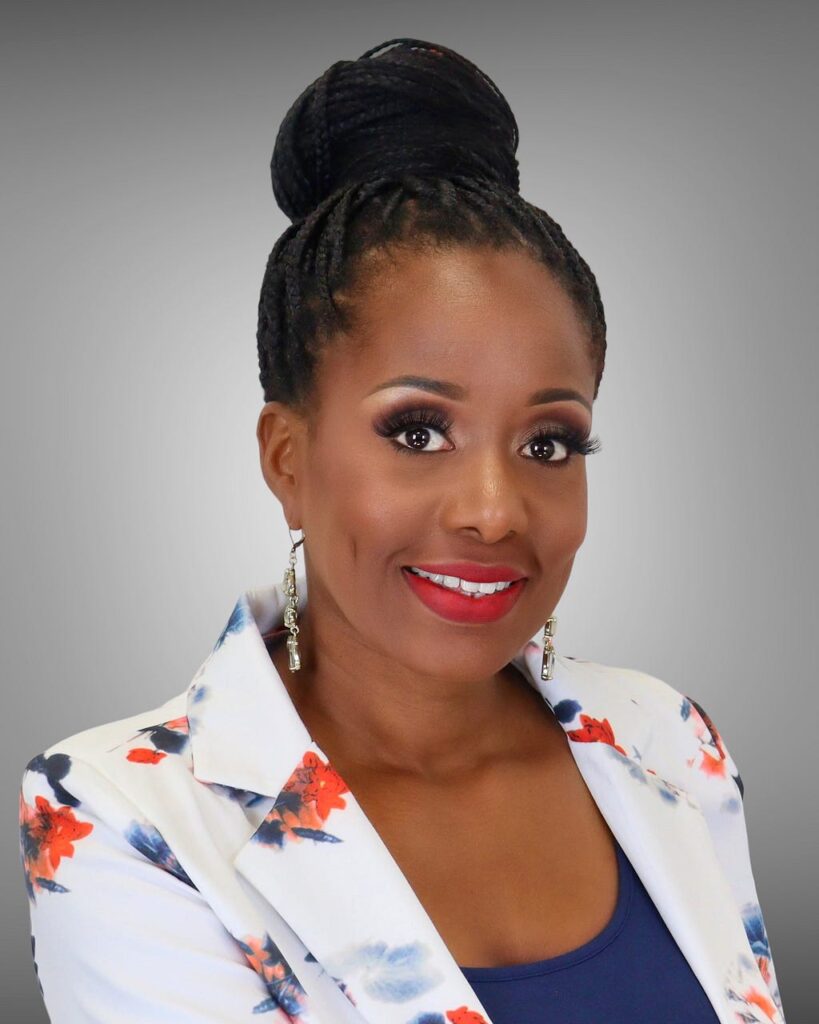Be focused on your mission — don’t follow the money. I have seen nonprofits add programs to get money or change the focus of a program to meet the needs of a funder. If you are true to your mission and strategic about your programming, you will build a successful organization.
As part of my series about “individuals and organizations making an important social impact”, I had the pleasure of interviewing Blythe Keeler Robinson.
Blythe Keeler Robinson is an innovative and passionate leader with nearly 25 years of non-profit management experience. She is an equity advocate and a nationally recognized leader in early education and two-generation approaches to educational success and economic security. Robinson is the President and CEO of Sheltering Arms Early Education and Family Centers in Atlanta, Georgia.
Thank you so much for joining us in this interview series! Can you tell us a story about what brought you to this specific career path?
I did not know that I would have a career in early education, but I knew that I would have a career working on behalf of children and families. But when I reflect on my life, I often think back to my own early learning experience. I attended Westmore Day Nursery in New York and have fond and vivid memories of my time there and my teachers. It was there where I learned to read and where my love for learning was developed. That time was critical in my development and set the foundation for my future success. I know the power of early education!
Can you share the most interesting story that happened to you since you began leading your company or organization?
One of the interesting things about leading an organization that’s been around for 135 years is that it’s common to meet people wherever I go who have a connection to Sheltering Arms — either they attended, or their child or relative attended or they know someone who taught there.
At one of our thought leadership events, I had the pleasure of meeting an alum who attended Sheltering Arms in the 1930s. We were not expecting her, but it was quite the surprise having the opportunity to meet her. She was in her 80s and shared her Sheltering Arms memories.
It has been said that our mistakes can be our greatest teachers. Can you share a story about the funniest mistake you made when you were first starting? Can you tell us what lesson you learned from that? I cannot think of any funny mistakes!
Can you describe how you or your organization is making a significant social impact?
I’m extremely proud to lead one of the largest and longest-established early childhood education organizations in the state of Georgia. Sheltering Arms was founded in 1888 as a safe space for children while their parents went to work in the mills. Today, 135 years later, we continue to provide that safe space, along with high-quality early childhood education and family support services to nearly 3,500 children and their families each year.
We view and approach our work through the lens of equity. It’s about opportunity and access to different experiences and to the best education, regardless of income or where they live. All children should have access to resources like any other child. We are a Two-Generation organization with our focus on educating and nurturing the children in our centers and giving them a world-class experience, AND providing their families with resources that help them create a legacy of economic stability for generations to come. We offer trainings and workshops on topics like financial literacy, job readiness, health and wellness, parenting skills and going back to school to get that diploma, certification or degree. We work closely with our partner organizations and professionals to connect our families with resources.
Accelerating family impact is so very key and is part of Sheltering Arms’s history and culture.
Can you tell us a story about a particular individual who was impacted or helped by your cause?
One story that comes to mind is that of Erika Sibbie. At age four, she moved to Atlanta with her mother and one-year-old sister. Her mother was looking for affordable childcare, and found Sheltering Arms through an ad. She enrolled both girls into the program so she could work her full-time job. Erika credits Sheltering Arms with sparking her love of reading and learning, which translated into earning high school honors and going on to college, where she pursued a career in medicine. Today, Erika is a dentist and the first doctor in her family. She gives back to her community, serving children in need.
Erika recognizes her single mother’s struggle to support two young children while moving to a new city. But through the program, she didn’t have to worry about the quality of education and care for her daughters, and her family was able to get access to the support services they needed most.
Click here for Erika’s full success story
Are there three things the community/society/politicians can do to help you address the root of the problem you are trying to solve?
The youngest learners in our communities today will be our leaders tomorrow. Setting them up for success begins now. That involves educating legislators and other influencers in our communities on the importance and impact of early childhood education before kindergarten, and why critical investment is needed to make high-quality programs available and accessible to all children.
This also means identifying third-party advocates who are willing to share the success stories of thousands of children who attended state-funded early education programs and have gone on to become successful, productive citizens who now give back to their communities.
Thought leaders in this field share stories like these, but also use crucial data to shed light on the disparities in underserved communities. We are very deliberate in engaging supporters to provide speaking platforms as we work together to find solutions for equal and sustainable access to high-quality early education.
The three things people can do are: advocate, invest and volunteer.

How do you define “Leadership”? Can you explain what you mean or give an example?
Servant leadership is important to me. The goal is to serve with a mindset of “people first,” focusing on their growth and development.
One of the ways I show that is by hosting “Brunch with Blythe,” a small gathering of employees recognized by their center directors. They join me for brunch at the main office in a casual setting. We introduce ourselves; I share my personal leadership story and other stories or lessons of inspiration, they provide feedback and share stories of their own, and they have the opportunity to ask me whatever question they want. What I enjoy most is the authenticity and the connection.
What are your “5 things I wish someone told me when I first started” and why. Please share a story or example for each.
I wouldn’t say these are things I wish someone told me, but more of 5 lessons that I always keep in mind.
Balance is important — it is easy to get into all the work, no play mode and that is not good for your health! Example: I schedule health and wellness activities (ie: workouts) just as I schedule work meetings. I don’t cancel work meetings, so I don’t cancel on myself either.
It is okay to make mistakes — those mistakes can actually be a great opportunity for growth
Be focused on your mission — don’t follow the money. I have seen nonprofits add programs to get money or change the focus of a program to meet the needs of a funder. If you are true to your mission and strategic about your programming, you will build a successful organization.
Example: a donor wanted to fund a very specific program that was off mission. We could have said yes to those dollars, but at what cost? Staying true to the mission was most important.
Don’t get so engaged in the everyday problems that you lose sight of the bigger picture.
It is okay to be vulnerable as a leader — you don’t need to have all the answers.
You are a person of enormous influence. If you could inspire a movement that would bring the most amount of good to the most amount of people, what would that be? You never know what your idea can trigger. 🙂
Poverty is such an issue, and we have the resources to address it. We need a movement around increasing access to capital and resources for all.
Can you please give us your favorite “Life Lesson Quote”? Can you share how that was relevant to you in your life?
I don’t have a specific quote, but my personal mission is to build promise in children. And one of the most impactful ways to do that is to support the family, the immediate surrounding, giving them access to opportunities. I’m passionate about advocating on behalf of children and families, but I know this work is bigger than me.
Is there a person in the world, or in the US with whom you would like to have a private breakfast or lunch with, and why? He or she might just see this, especially if we tag them. 🙂
I would like to have a private meal with Michelle Obama. I love her energy, her intellect and her passion. She seems so real and relatable. Honestly, I would love to get some life and leadership lessons from her!
How can our readers further follow your work online?
Instagram: @blythekeelerrobinson, @sheltering_arms
Twitter: @bkrob75, @sheltering_arms
LinkedIn: Blythe Keeler Robinson, Sheltering Arms Early Education and Family Centers
This was very meaningful, thank you so much. We wish you only continued success on your great work!
Social Impact Heroes: Why & How Blythe Keeler Robinson Is Helping To Change Our World was originally published in Authority Magazine on Medium, where people are continuing the conversation by highlighting and responding to this story.
